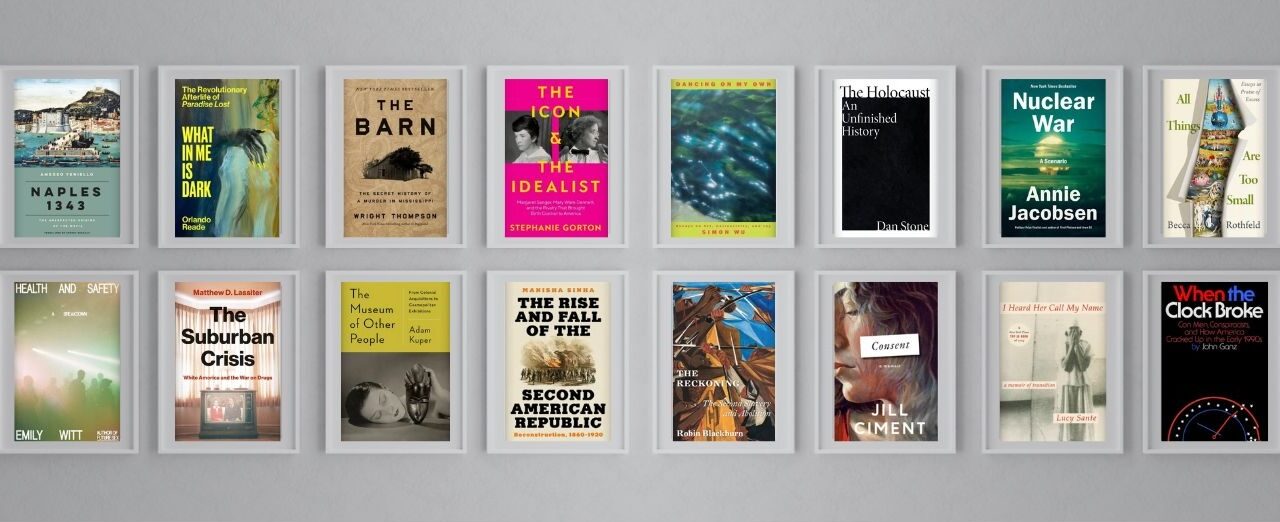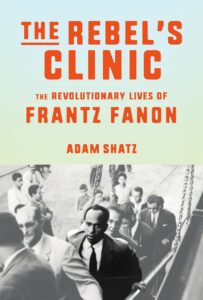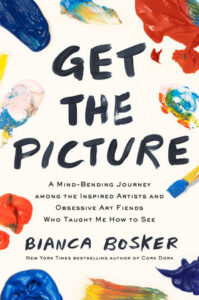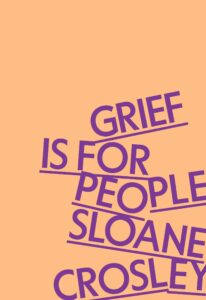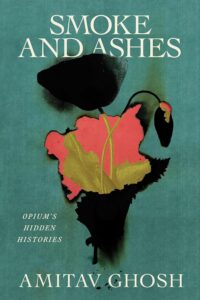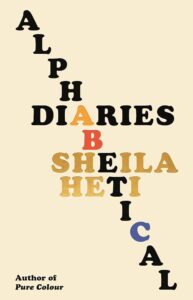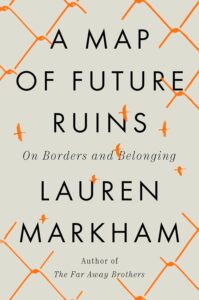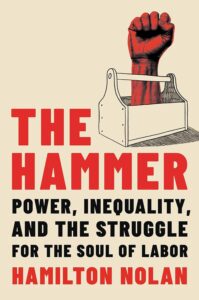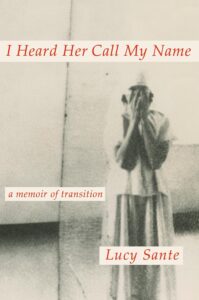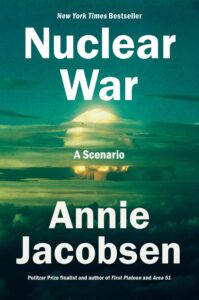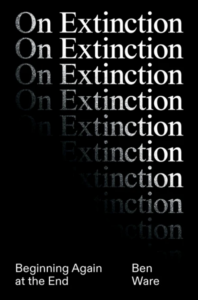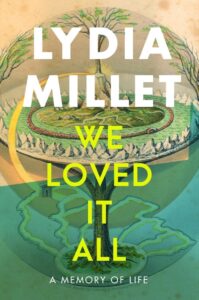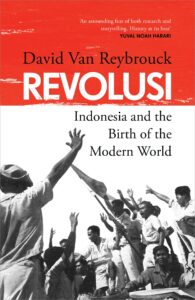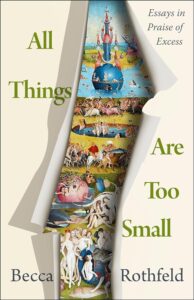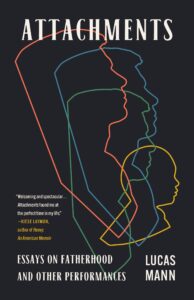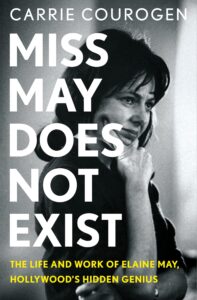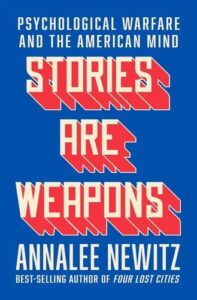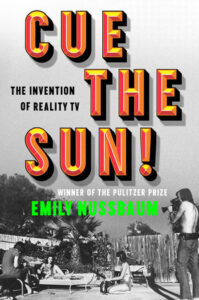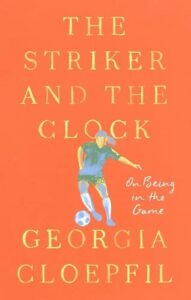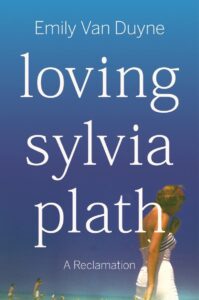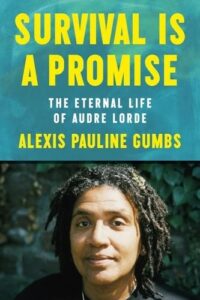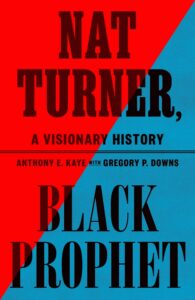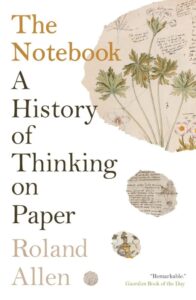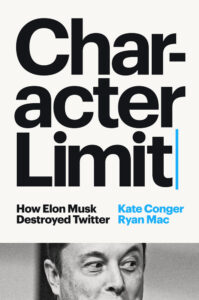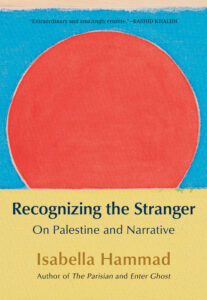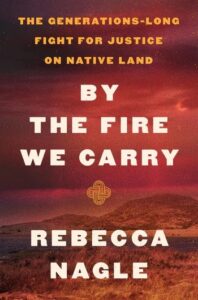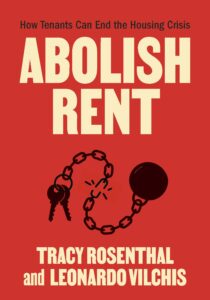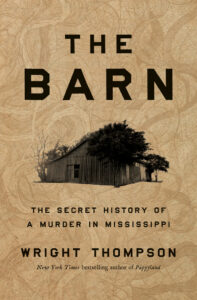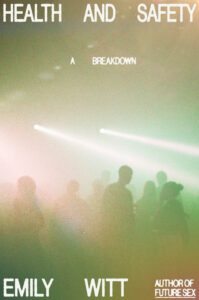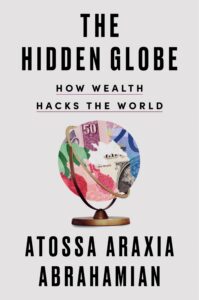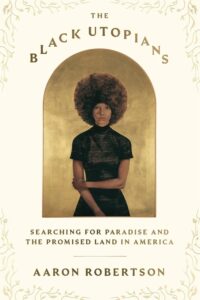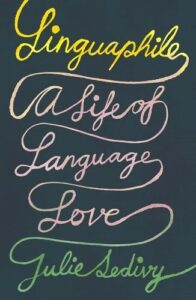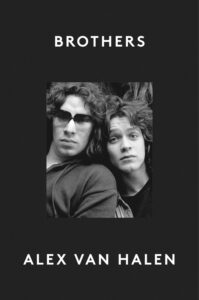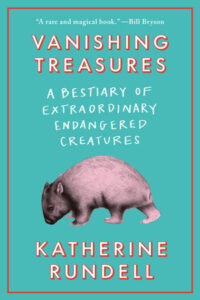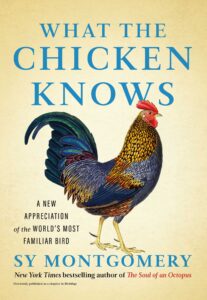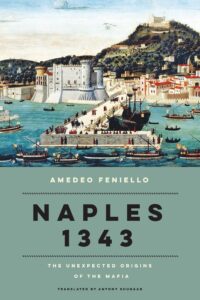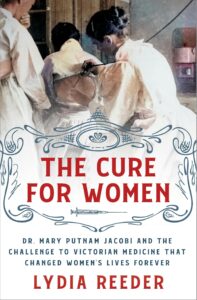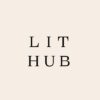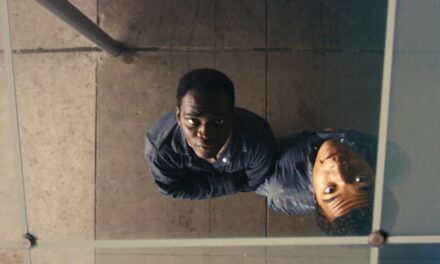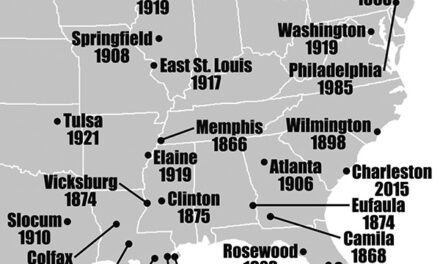
This past year was as dismaying as it was disorienting (as was the year prior, as will be the year to come). As we collectively drown in a daily deluge of disinformation it is to books that we turn for something like an anchor to truth—facts still matter, and reality is still there to be witnessed. The following 50 books are just some of the texts that helped Lit Hub editors better understand the world as it is, and, perhaps, where it might be headed.
The following list was assembled by Brittany K. Allen, Drew Broussard, Jonny Diamond, Emily Firetog, James Folta, Jessie Gaynor, and Molly Odintz.
*
The Rebel’s Clinic charts the life of Fanon, who left Martinique to fight for France in WW2, then found himself drawn into Existentialism in the postwar years. An examination of one of the pre-eminent writers and activists of the postcolonial period, The Rebel’s Clinic also serves as a primer for Fanon’s most famous works, Black Skin, White Masks, and The Wretched of the Earth. Essential reading in this forever moment of post-colonial violence.
This fresh take on a subject that is becoming overly familiar and hence, Stone argues, simplified and banal, shakes up our understanding of the Holocaust. Stone’s analysis of the sheer brutality of the Holocaust undermines the strangely comfortable image presented by the use of terms like “industrial” or “factory-line” murder which misrepresents the large number of Jews killed by face-face execution or by starvation as well as by sanitizing the horrors of killing factories like Auschwitz. Stone brilliantly shows the way the Nazis in particular and segments within European society enthusiastically embraced apocalyptic visions and violence, and how this has parallels with current responses to climate change, migration, pandemics and xenophobia.
Bianca Bosker, Get the Picture
(Viking, February)
Bosker’s Cork Dork was a massive and well-deserved hit—and her style of gonzo-ish journalistic immersion is well-suited to this dive into fine art. It’s whip-smart and funny, not afraid to acknowledge the beautiful absurdities of the art world while also wholeheartedly embracing and extolling the reasons why a passion for art has, can, and will always be a force that could change the world.

Towards the end of the 18th century, slavery seemed to be fading as an institution, yet the 19th century saw intense expansions of slavery and new levels of exploitation in Cuba, Brazil, and the Southern United States. Robin Blackburn is the author of several works on the history of Atlantic slavery, and The Reckoning is clear, concise, and comprehensive—an essential addition to the history shelves and a necessary antidote to historical amnesia.
A couple of years ago Crosley lost her closest friend Russell—her old boss and dearest confidante—to suicide. Grief is For People is her attempt at comprehending the incomprehensible: how this could have happened, were there signs, and most horribly, was there anything she could have done to prevent it. Suicide memoirs can be hard, but this one is more a meditation on loss, and a eulogy for this man she loved; and it manages throughout to convey that trademark Crosley humor and tenderness.
Based on decades of archival research, both personal and historical, Ghosh’s hybrid history follows the intersecting routes of the 19th-century opium trade, a transnational economy powered by the devastating fusion of colonialism and capitalism. As one of the world’s first truly global commodities, opium made its way from China to India to Britain and back again, impacting the lives of many millions, from the lowliest deckhands to the richest New York families to members of Ghosh’s very own family. Important context for the globalized world that came after.
Heti’s clever conceit for this project—sorting the sentences from a decade of her diary alphabetically and then editing them down—scrambles our expectation of reading someone’s most private writing. The result is a strange and beautiful book that uncouples these intimate and introspective sentences from the narrative in which they were created. It’s a thrilling book, both in form and execution.
Lauren Markham’s intrepid reporting is always a pleasure to read, and you get the feeling that with A Map of Futures many of her writerly interests, from the heritage of ideas to her own family heritage, and, of course, the ethics and praxis of migration, have found their perfect combination. This book charts how a sprawling refugee camp in Greece, that no one wanted in the first place, was burnt down in 2020, with six young Afghan refugees arrested for the crime.
You don’t have to read Thomas Piketty’s Capital to understand that extreme wealth disparity is bad for any society (but it helps!). And as labor reporter and longtime Gawker writer Hamilton Nolan shows with The Hammer, the best way to reverse America’s decades-long slide into a new Gilded Age is through the power of organized labor. Though unions have long been targeted by those in power, Nolan shows how a new generation of activists—catalyzed by the stark lessons of the pandemic—has rallied support for labor across this country, winning some real battles in the long, slow war against the top of the wealth pyramid.
Lucy Sante is one of our great writers, and I’m always excited when she has something new. This year she returned to memoir with a complex, vivid, and personal book about her life and transition. The writing is sparkling as always, and Sante moves deftly between past and present, from 1970s New York to 2020s smartphone face-tuning apps. Like all of her work, Sante investigates and essays deeply, never settling for the mawkish or reductive.
Jacobsen’s book narrates a fictional nuclear war, describing events in a grim timeline: “Four-Tenths Of A Second After Launch,” “4 Minutes, 30 Seconds After Launch,” etc. She breaks out of this narrative into history and reportage; her factual detail is impressive, shedding light on a secretive and frightening world. But what sticks with me is Jacobsen’s grounded fiction, rendering the decisions, destruction, and fallout in searing and immediate detail.

Tracing the history of Reconstruction over a fairly long period—1860 to 1920—allows the full scope of effort and tragedy to be made visible. Manisha Sinha’s magnum opus stands alongside Eric Foner’s Reconstruction as essential texts to understand how we got to now, and who we might have been instead. It is also a sharp reminder of how badly behaved the post-war south had to be to spur governments towards any protection of civil rights: in short, they were more annoyed by white southern recalcitrance then they were motivated to protect Black southern rights, or lives. Sumpter was cool though.
It is foolhardy to think we can reverse the devastating effects of the climate crisis—and the immense threat to human existence they pose—with anything but the most radical change in course. Sadly, with every passing month, that change seems impossible. What philosopher Ben Ware is asking, then, is for us to imagine—to internalize—the reality of human finitude, the end of us. Only then, he suggests, will we be able to take in the full horizon of what we’ve wrought and, perhaps, move forward into a new and radical version of our shared future.
Lydia Millet’s first book of nonfiction has already earned itself a place alongside the classics of conservation writing. In We Loved It All, Millet urges readers to think of themselves as part of a larger tapestry, one that has already seen countless species pushed out of existence to accommodate human concerns. Millet’s awe of nature is contagious, even as it lives alongside the grief of our everyday destructions.

In this fascinating deep dive into the most problematic of museum exhibitions, Adam Kuper carefully traces the rise and fall of collections dedicated to anthropology and ethnography, and thus even more dedicated to upholding notions of racial and cultural superiority undergirding the logic of empire. An excellent companion read to The Invention of Prehistory, also included on this list.
Indonesia was the first country to liberate itself from colonialism after the end of WWII, and its fighters, politicians, and thinkers shaped the next half century of history across the Global South. So why aren’t there more books about the origins of the world’s largest island nation? Revolusi is a must-read for anyone who wants to understand the early history of decolonization, and the ways in which African and Asian nations banded together to fight European domination and influence.
Rothfeld is one of our favorite critics working right now. This debut essay collection contains a few bangers fans may recognize from her regular column at The Washington Post, but there’s also some great new writing. Every piece sits under her umbrella thesis—a case for maximalism. In sharp, sometimes ecstatic prose, she praises the luxurious sentence, the messy home, and the consuming lust.
Lucas Mann, Attachments
(University of Iowa Press, May)
A brilliant essay collection that’s about so much more than its notional subject—fatherhood—Mann delves into everything from movie-going to sleep-training to the climate crisis; and as with everything he writes, Mann achieves the perfect balance between brutal honesty, journalistic erudition, and, most importantly, good jokes (none of which are of the dad variety). Not just for parents, Attachments is cultural criticism at its best.
Jill Ciment, Consent
(Pantheon, June)
When Ciment was seventeen, she had an affair with her art teacher, a married man in his forties. She eventually married him, and they remained (mostly) happily together for over four decades until his death at age 93. In Consent, Ciment reexamines their relationship in a way she could only after her husband’s death. Who had actually kissed whom first? Who pursued whom? In asking questions like these Ciment also interrogates how we write—and how we read—memoir.
You don’t have to be a comedy nerd and lapsed improviser to enjoy this one. Courogen’s book details May’s extraordinary comedy career from childhood theatre acting, to the legendary duo Nichols and May, to film directing. Miss May Does Not Exist is filled with great show-biz drama, but what sets it apart is the way it pierces the myths to reveal a troubled, devoted comedic genius who hasn’t often gotten the credit she deserves.
This twisty, harrowing history of the American right traces a strain of black hat conservatism from David Duke to Pat Buchanan, building to a theory that’s as readable as it is compelling. This book made unexpectedly great election week company, helping as it did to situate reactionary forces in a lineage.
As American media coverage of Israel continues to track further right than even some of the larger daily newspapers in Israel (Ha’aretz, for example), it becomes easier and easier in this country to equate criticism of Israel with antisemitism. If only everyone tempted to do so would read a copy of Kroll-Zeldin’s thoughtful, deeply personal look at the experience of Jewish American activists protesting the systemic violence of the Israeli state against Palestinians. Crucial context for the courage of American Jews who take seriously the warning “never again.”
What does it mean to put a border around nature? To impose order on the wildness and beauty of creation? And who gets to enjoy it? These are but a few of the questions posed by Olivia Laing’s hybrid memoir-cum-horticultural history, which moves from the very real work it takes to revivify an 18th-century English garden to the imagined Edens of John Milton and the queer utopias of Derek Jarman. Like all of Laing’s work, this is a garden to get lost in and wander.
Annalee Newitz, Stories Are Weapons
(WW Norton & Company, June)
Newitz, a beloved speculative fiction writer, is also a terrific essayist and journalist—and their latest, about America’s long history with psy-ops, couldn’t have come at a better time. From Ben Franklin to replacement theory to the CIA funding the Iowa Writers Workshop and beyond, Newitz examines not only how these stories (true, false, or somewhere in between) have shaped our lives and society. (With a little advice on fighting disinformation going forward, too).
Emily Nussbaum, Cue the Sun
(Random House, June)
Emily Nussbaum is one of the smartest and most interesting chroniclers of our television age—from the high highs to the low lows, and their many points of intersection. In this history of reality television (or “dirty documentary,” as she calls the genre), she tells the story of the fascinating reality behind the reality, and why it matters. A juicy, deeply-researched work of cultural scholarship.

Simon Wu’s debut collection is, simply, a joy to read. His subjects range from art, fashion, and capitalism (and the inextricable bonds among them), the limits of identity politics, drugs, and clutter. His writing is fleet and sharp, with emotional depth that catches you unaware. Much like the anthem from which it takes its title, this is a book that crackles with energy.
It is very, very rare to describe a sports memoir as both “gripping” and ”experimental” but Cloepfil has pulled off such an incredible feat of formally adventurous storytelling it is worth celebrating. Divided into 90 asynchronous vignettes (mirroring, somewhat, the 90 minutes of a soccer game) The Striker and The Clock follows Cloepfil’s journeywoman career across six countries and multiple leagues, providing striking insight into all the joys and pains of life as a professional women’s soccer player.
A “radical” new reading of Plath’s life and legacy from Plath scholar, superfan, and Literary Hub contributor Emily Van Duyne, which examines the many myths surrounding the poet before taking them apart, wiping off the grime, and reconstructing a new vision of Plath for the future.
Very rarely, a book comes along that changes an entire genre—Gumbs’s long-anticipated biography of Audre Lorde is one such book. It is a biography but it is also a memoir, an ode, an interrogation. It is not structured like a traditional biography in any way, which feels fitting for a project embracing one of the great iconoclastic writers of the 20th century. Whether you’re familiar only with Lorde’s most famous work or a true superfan, Gumbs’s book will reveal wonders.
Anthony E. Kaye with Gregory P. Downs, Nat Turner: Black Prophet
(FSG, August)
Billed as the most definitive account yet of Nat Turner’s 1831 slave rebellion, the late historian Anthony E. Kaye focuses here on the visionary, spiritual side of Turner’s call to arms (he was an enslaved preacher, after all), placing his life in the context of 19th-century Methodism and its integrated spaces. Turner’s divine visions—and the violence they inspired—would change the American South for generations.
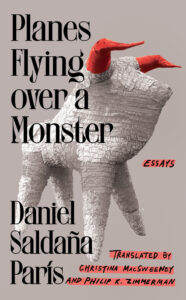
Daniel Saldaña París, trans. Christina MacSweeney and Phillip K. Zimmerman, Planes Flying Over a Monster
(Catapult, August)
Taken individually, each of these essays—about a moment (long or short) in París’s relationship to a city and to himself at that time of life—are terrific. But taken as a whole, the book is a curious snapshot of a brilliant writer, functioning as memoir, self-mythology, and creative exploration. Plus, it’s a chance to travel to corners of the world with a puckish guide, all from the comfort of your home.
In our voraciously digitized age the notebook remains one of the last safe and solitary places for the human mind; and, as Roland Allen outlines in this delightful history of jotting things down, it’s always kind of been that way. Finding the perfect balance between anecdote and analysis—in the tradition of Alberto Manguel’s wonderful History of Reading—The Notebook is a deeply readable survey of one of thinking’s greatest tools, from Chaucer to Darwin to Frida Kahlo.
As the richest man in the world prepares to take charge of cutting the federal budget (just typing those words gives one chills) it’s probably good to understand his approach to overhauling any institution. Which is why Character Limit—a deeply reported inside look at Musk’s reckless demolition of the digital town square—might be one of the most important books of the year.
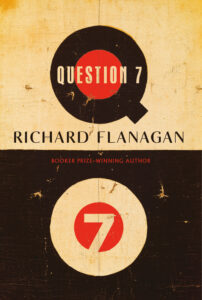
Richard Flanagan, Question 7
(Knopf, September)
This meditative novel-cum-memoir-cum-history (historiography?) is further proof that Richard Flanagan is one of our best living writers. With customary moral power and philosophical insight Flanagan slowly builds a narrative from moments in his own life, his parents’ life, Tasmanian history, and the darkest corners of WWII. A masterpiece.
Nine days before October 7, Hammad delivered the Edward W. Said Memorial Lecture at Columbia University. A powerful, profound, and fascinating speech that blended literary criticism and cultural analysis to illuminate the Palestinian struggle for freedom, it is published here alongside a searing afterword, written in the early weeks of 2024, when Israel’s war on Gaza had already claimed the lives of over 25,000 people.
Rebecca Nagle’s deeply reported book on the fight for tribal land and sovereignty in eastern Oklahoma centers on recent Supreme Court cases that sought to establish tribal rights and power over land. Nagle, a journalist and citizen of Cherokee Nation, contextualizes these cases in the larger historical struggles for Indigenous rights and self-determination. Nagle compellingly narrates the arc of the struggle witnessed by her ancestors and herself. An illuminating and wrenching book.
Tracy Rosenthal, Leonardo Vilchis, Abolish Rent
(Haymarket, September)
It becomes clearer every day that the only way to effect meaningful change is via grassroots community organizing. Written by two co-founders of the largest tenants union in the country, Abolish Rent serves as both a primer on the tenants’ rights movement and an invaluable resource for anyone victimized by the housing crisis (in short: renters). Because, of course, housing is a human right.
Wright Thompson, The Barn
(Penguin Press, September)
A brilliant and unforgettable telling of Emmett Till’s life, death, and legacy, as well as of the place where the murder happened. Thompson, who is white, grew up in the Mississippi Delta, and writes about the place and its people in a way that’s as clear-eyed as it is gripping. The Barn is an essential read for anyone with a vested interest in this country.
This is one of those rare memoirs that tends toward out-sight. Witt uses a set of personal experiences—a love affair with club drugs and rave culture, a traumatic break-up—as a launch pad for a larger inquiry into how and why we seek communal space. The result is a humble, occasionally profound chronicle of attempts to de-center the self. Certain passages made us at once nostalgic and optimistic for all tomorrow’s parties.
Atossa Araxia Abrahamian, The Hidden Globe
(Riverhead, October)
Don’t read The Hidden Globe if you’re worried about your blood pressure. Atossa Araxia Abrahamian’s meticulously researched exploration of the shadowy, lawless spaces where the very rich pursue endless growth—spaces invisible to most of us even as it shapes the world we live in, is infuriating. That is, of course, what makes it a necessary read. Luckily, it’s also sharp and gripping. If only it weren’t so timely.
This brilliant and sardonic text takes readers through the farcical, cringe-worthy historiography of prehistoric humanity, in which many terrible philosophies have come to many terrible conclusions. Nationalists, fascists, eugenicists, and run-of-the-mill racists have each interpreted human origins in ways that were more designed to support their own narratives than to be beholden to actual science or history. With a modern resurgence of all these ideologies and new fights over the myths that give us meaning, The Invention of Prehistory makes for essential—and disturbingly relevant—reading.
This meditation on the meaning of utopia for Black Americans is a lush history couched in a stirring memoir. Aaron Robertson sprouts his book on personal earth, framing an account of the radical Detroit preacher Albert Cleage and his Afrocentric parish, the Shrine, with stories of his own family’s roots in Promise Land, Tennessee. But he’s so elegant in braiding personal history and research that both distant events and bright futures feel tangible and alive.
Julie Sedivy, Linguaphile
(FSG, October)
Language is both universal and intensely personal, so it’s fitting that linguist Julie Sedivy blends memoir with scientific and cultural studies to create this lyrical meditation on the power and mystery of language, from the beginnings of our lives through the end.
Alex Van Halen, Brothers
(Harper, October)
A love letter to brothers—of blood and of bond—and a genuinely (even surprisingly) moving act of public grief. In order to help process his devastation over not just the death of his brother Eddie (one of the best guitarists of all time) but also years of bad behavior and the decades-long public drama between the VH brothers and David Lee Roth, Alex worked with Ariel Levy to craft a sprightly and delightful memoir that isn’t just for rock fans.
Katherine Rundell, Vanishing Treasures
(Doubleday, November)
Everyone knows about the seahorse: the males carry the young and they mate for life. But what about the American wood frog which freezes itself solid to survive the winter? Or the lemur, which “whenever they are cold or frightened, group together in what’s known as a lemur ball”? In Rundell’s new book, she explores 23 unusual and underappreciated endangered animals, presenting readers with the chance to “reckon with the beauty of the world, its fragility, and its strangeness.”
Sy Montgomery is a master of interest—both taking and translating it. Here, she turns her attention to her flock of backyard chickens, and the result is a thoroughly charming appreciation of “the world’s most familiar bird,” as warm as it is enlightening.

Safety is an illusion. Pushers are a fiction. Honestly, people just really like drugs, and will do whatever they need to do to get them. So how did we decide that some areas, like the suburbs, needed protection from the big bad city drugs? Mostly racism, but some classism too, and some very condescending opinions about women. Matthew D. Lassiter’s deep dive into the geography of the drug war is at times furious, at other times hilarious, and entirely necessary for debunking the foundational myths of the burbs.

Mary Ware Dennett and Margaret Sanger spent much of their adult lives campaigning for birth control, and most of that time engaged in an intense rivalry with each other that was both fruitful in its consequences and illuminating in its implications. Each made mistakes, compromising either the integrity of their mission or their pragmatic chance of success, and each was a force to be reckoned with. The Icon and the Idealist is an essential window into still-unresolved debates and disagreements within the movement for sexual and birth autonomy, and makes for fortifying reading in the post-Roe world.
Apparently, we can blame the rise of the Mafia on the diffused empire structures of the high Middle Ages, as weak rulers and a long period of social crisis allowed the most powerful families of Napoli to begin their long journey into organized crime. Amadeo Feniello is an erudite historian who doesn’t let his deep knowledge of his subject matter get in the way of a good anecdote.
Orlando Reade, What in Me is Dark
(Astra House, December)
There’s something so satisfying about a passionate deep dive into a single subject. In Orlando Reade’s fascinating deep dive into the many cultural (and political) lives of Paradise Lost, he manages to transmit his enthusiasm with enough momentum and eloquence that even a poetry agnostic will be captivated. Ultimately, Reade’s story focuses on the centrality of literary interpretation (something about which the world can always use a reminder).
Lydia Reeder, The Cure for Women
(St Martin’s Press, December)
The story of Dr. Mary Putnam Jacobi, a practitioner of and fierce advocate for women’s health care in the Victorian era, is both underexplored and continually relevant. In Lydia Reeder’s fast-paced, novelistic biography, she shines light on Jacobi’s essential work, and reminds readers of the ways in which women’s health concerns remain woefully understudied.
